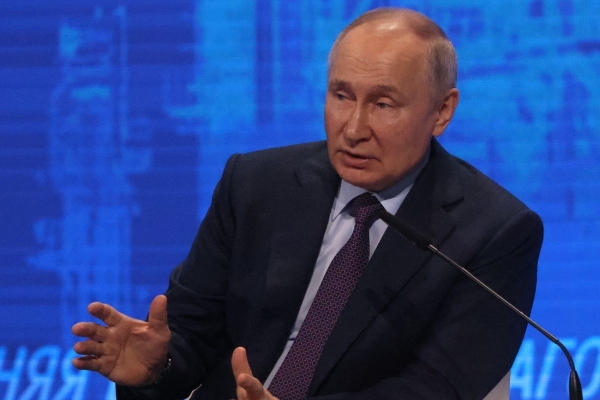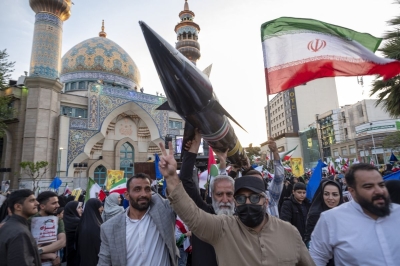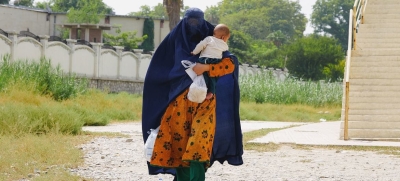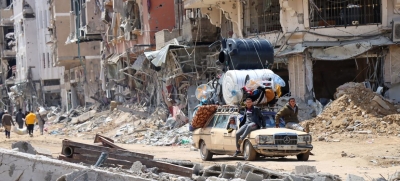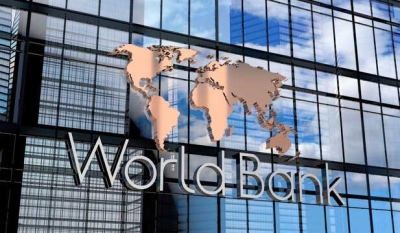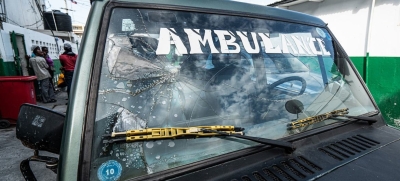The International Criminal Court has issued a warrant for Russian President Vladimir Putin for war crimes, a hugely significant and symbolic step, even if he never faces trial.
The ICC specifically alleges that Putin is responsible for the “unlawful deportation” and transfer of Ukrainian children from Ukraine to the Russian Federation. The court also issued a warrant for Maria Alekseyevna Lvova-Belova, Russia’s commissioner for children’s rights, for similar war crimes.
These are the first ICC warrants for alleged war crimes in Ukraine — and the court went directly for Putin. “Going straight to the top is a bold move for the ICC, but one that makes sense in this situation,” Rebecca Hamilton, associate professor at American University Washington College of Law, wrote in an email. “There are so many different actors working on accountability for war crimes in Ukraine, but the ICC is the only one with the capacity to go after President Putin.”
This is not the first time the ICC has issued a warrant to a sitting head of state, but it is the first for a head of state of a permanent member of the United Nations Security Council. “In that sense, it is much more politically consequential than the other indictments that the ICC issued for heads of state,” said David Bosco, an international law expert and associate professor at the Indiana University Bloomington.
At the same time, there is very little chance Putin will actually face trial. The accused can’t stand trial in absentia, and Russia is not a party to the ICC (neither is the US; Ukraine isn’t either, but it has previously accepted the court’s ad hoc jurisdiction.) “The decisions of the International Criminal Court have no meaning for our country, including from a legal point of view,” Russian Foreign Ministry spokesperson Maria Zakharova posted on Telegram.
But this warrant will likely make it even more difficult for Putin to travel abroad, especially to other countries that do recognize the court’s jurisdiction, deepening his international isolation.
More than that, it carries serious symbolism, especially given the wider allegations of war crimes and atrocities against Russia throughout the Ukraine war. The decision to go after Putin was a major move by the court — rather than, say, going after midlevel generals or something of the like. It is tying the allegations of war crimes in Ukraine directly to the man who launched the invasion. It is also a signal to Ukraine that the court is pursuing evidence of war crimes, with urgency and a real commitment.
Why did Putin get charged with war crimes?
Human rights groups and other investigators have documented evidence of Russia’s forcible and illegal adoption and relocation of children from Ukraine to Russia, or Russian-occupied territory. Many groups, including the UN-backed inquiry, have said it likely amounts to a war crime. The Ukraine government has claimed that around 16,000 Ukrainian kids have been illegally relocated by Russia.
Russia does not exactly deny its removal of children from Ukraine. Instead, it advertises it, deploying it as a propaganda tool to promote the war in Ukraine and frame the adoptions as a patriotic and just act.
This likely guided the ICC’s decision to pursue Putin for these particular crimes; this is happening out in the open, and Putin is closely tied to the policy. There is evidence that Russia and Russian troops may have committed other war crimes in Ukraine, from kidnappings to massacres to indiscriminate attacks on civilian populations. But, as experts said, it can be a bit more complicated to track that back directly to Putin — or will at least take more evidence-gathering and investigation.
“The evidence collection on the crime of the unlawful deportation is strong, and the crime is recognizably horrific, so it makes sense as a place to start,” Hamilton said. “In addition, the court signaled that by making this public, they hope to deter further deportations.”
Experts said this was unlikely to be the end of potential war crimes charges for Russian officials, and even for Putin himself. But by coming for Putin first, the court is sending a message that other Russian officials, from the top, down, may also be held accountable for potential war crimes in Ukraine.

